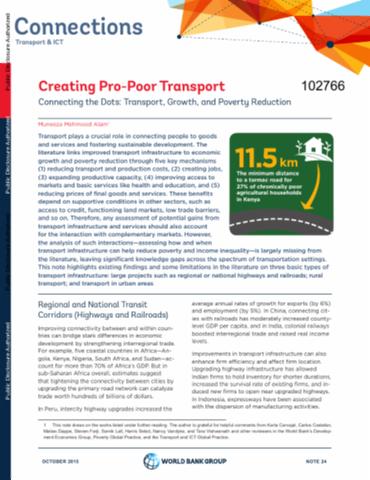Resource information
Transport plays a crucial role in connecting people to goods and services and fostering sustainable development. The literature links improved transport infrastructure to economic growth and poverty reduction through five key mechanisms: (1) reducing transport and production costs, (2) creating jobs, (3) expanding productive capacity, (4) improving access to markets and basic services like health and education, and (5) reducing prices of final goods and services. These benefits depend on supportive conditions in other sectors, such as access to credit, functioning land markets, low trade barriers, and so on. Therefore, any assessment of potential gains from transport infrastructure and services should also account for the interaction with complementary markets. However, the analysis of such interactions, assessing how and when transport infrastructure can help reduce poverty and income inequality, is largely missing from the literature, leaving significant knowledge gaps across the spectrum of transportation settings. This note highlights existing findings and some limitations in the literature on three basic types of transport infrastructure: large projects such as regional or national highways and railroads; rural transport; and transport in urban areas.


